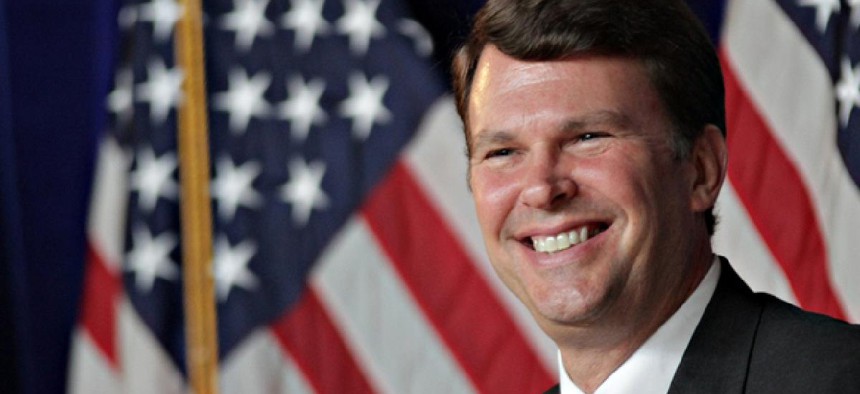Mentoring can make a mark, personnel chief says
Speech comes as Congress weighs a phased-in retirement approach that would allow older employees to pass along knowledge to younger colleagues.
Office of Personnel Management Director John Berry’s early career mentors included a former general manager of the Washington metro transit system and a conservation biologist who fought to save golden lion tamarind monkeys from extinction, coming up with new solutions even on her deathbed.
The former taught him formal dinner table etiquette. The latter demonstrated the power of persistence.
Those were among the mentoring stories Berry shared Monday with an audience of human resources employees from 20 federal agencies at a Flash Mentoring Event in Alexandria, Va.
“I am where I am today because I had wonderful mentors in my life,” he said. “You need people who will tell you the truth, and who will give you the benefit of their experience.”
The event, sponsored by the Chief Human Capital Officers Council and HR University, was designed to pair more seasoned federal HR professionals with less experienced employees to develop the kinds of relationships Berry emphasized in his speech.
Participants were told they were not to use the event to job hunt or to recruit, but to share experiences and wisdom.
Berry’s belief in the importance of mentoring programs underscores a governmentwide emphasis on passing along knowledge from one generation of federal workers to the next. The number of federal retirees is expected to grow by 10 percent during the next decade, with spending on federal retirees to increase by 30 percent, according to Congressional Budget Office research.
The Senate passed legislation last week that includes a plan for older employees to work part time and, as they ease in to retirement, to mentor younger newer hires.
But the benefits of mentoring can work both ways, Berry said.
“We go into this because we care. It wasn’t for money,” he said. “Sometimes amidst the tug and turmoil and the battles and the scars, we forget that. You, who are mentees, remind us of it. And then let us help you.”
NEXT STORY: How to Coach Leaders to Really Change



